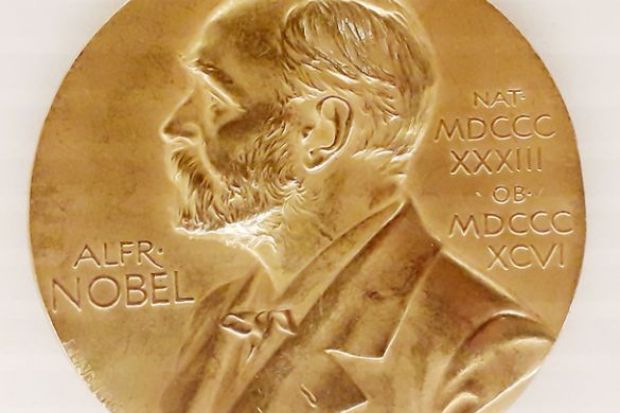A team of Stanford University scientists has identified a possible downside to winning a Nobel Prize: it appears to decrease research productivity.
The team – with several professors of health policy and medicine – reviewed the publication records covering 60 years of winners of the Nobel Prize in Physiology or Medicine.
It compared their post-prize performances – across publications, citations and a computerised attempt to identify “novel ideas” – with a similar set of winners of the Lasker Awards, a leading US research prize in medicine.
“Post-Nobel, laureates’ productivity decreased sharply, eventually falling below that of Lasker winners on all three measures,” the team said in a paper posted ahead of peer review by the National Bureau of Economic Research.
“Probably most concerning is the decrease in the novelty of the ideas that Nobel prizewinners work on after they win the prize, relative to before,” said one of the authors, Jayanta Bhattacharya, a professor of health policy at Stanford.
Professor Bhattacharya said the novelty measure – which he created with the paper’s one non-Stanford author, Mikko Packalen, an associate professor of economics at the University of Waterloo – used a computer program to “read all your papers and measure the age of the ideas in each paper”.
The purpose of the effort, Professor Bhattacharya said, was to identify the drop-off and create room for universities and others to possibly address it. “Maybe if there’s some way we can reduce the unwanted burden of new attention brought by the Nobel Prize, that might be one constructive thing you could get out of this paper,” he said. “I wouldn’t say that this is an argument to get rid of the Nobel.”
But at least one Nobel winner, Professor Bhattacharya’s Stanford colleague Carl Wieman, a professor of physics and of education, questioned the value of the inquiry. Professor Wieman won a share of the Nobel Prize in Physics in 2001 at the University of Colorado Boulder, then shifted his career focus toward finding ways of improving university science instruction. His subsequent honours included winning the 2020 Yidan Prize for Education Research, worth $4 million (£3 million).
Other Nobel laureates have done similar things, deciding their alternative pursuits were worth more “than a little more scientific productivity would be”, Professor Wieman said.
“That is the question every Nobel laureate has to ask themselves when asked to serve on such things,” he said. “Clearly they decide the public service is a more important use of their time, and I think they are probably correct.”
Professor Bhattacharya acknowledged that his team didn’t study the value of such alternative pursuits. “Some people may be at the end of their productive scientific career, and it may be a perfect thing,” he said.
Register to continue
Why register?
- Registration is free and only takes a moment
- Once registered, you can read 3 articles a month
- Sign up for our newsletter
Subscribe
Or subscribe for unlimited access to:
- Unlimited access to news, views, insights & reviews
- Digital editions
- Digital access to THE’s university and college rankings analysis
Already registered or a current subscriber? Login








